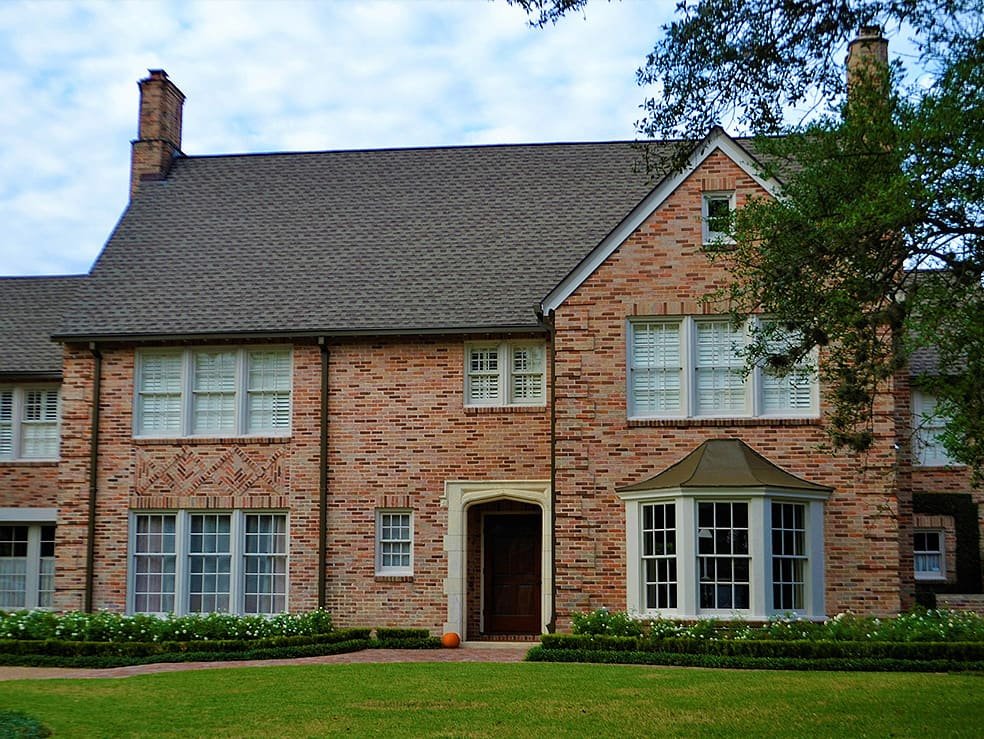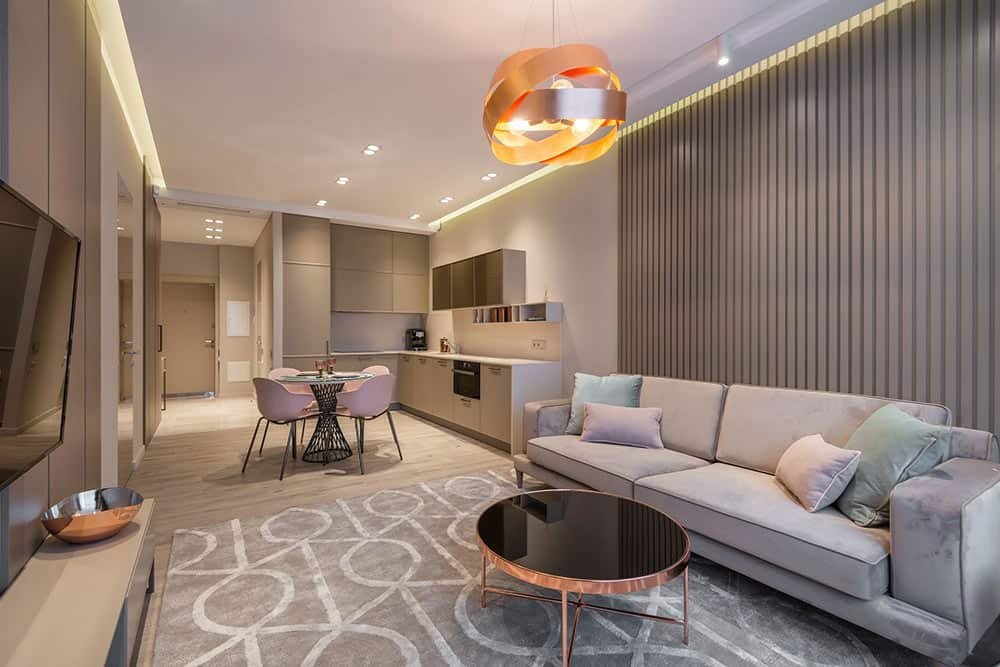
If you’re a landlord in Flintshire or Cheshire, it’s important to prioritize your tenants’ safety by complying with the 170 rules and regulations governing health and safety.
As a budding local landlord, you must take reasonable steps to eliminate potential risks in your property to prevent penalties that come with failing in your duty of care. In this blog post, we will discuss and unearth a list of essential things to know to keep your tenants safe, such as carrying out a risk assessment, ensuring gas and electrical safety, fire safety, security, and protection against intruders.
Your legal responsibilities
As a landlord, it’s your duty to ensure the safety of your tenants while they reside in your property. Letting regulations comprise approximately 170 rules and regulations, many of which pertain to health and safety. Therefore, it’s essential for you to comprehend and be aware of the measures you need to implement.
But it’s not only about fulfilling your legal obligation to protect your tenants. It’s also crucial to prove that you’ve taken every reasonable action to eradicate potential hazards on the property. Failing to do so can lead to severe penalties, so it’s worthwhile to exceed the minimum requirements.
Take steps to ensure your new home is safe
To start, a risk assessment helps you identify potential hazards such as excess heat or cold, damp and mould growth, electrical shocks, fires, trip hazards, infection, pollutants, and the chance of intruders gaining entry. After identifying potential risks, landlords can take action to repair or adjust them immediately, while prioritizing any further action that may be necessary. You want to make sure your new home is not only comfortable but also safe for you and your tenants. While there’s no legal requirement for you to complete a written risk assessment unless you’re buying a House in Multiple Occupation (HMO), it’s still a good idea to carry one out so that you can identify potential risks and take action to address them.
You can easily find risk assessment templates online that are based on the 29 categories of housing hazards identified by the Housing Health and Safety Rating System (HHSRS). These include issues like excess heat or cold, damp and mould growth, electrical shocks, fires, trip hazards, and pollution.
To start, go through each room in your new property and look for signs of potential risks. If you spot anything that could be dangerous, like uneven floors or loose carpeting on stairs, make sure to address it right away. It’s also a good idea to prioritize any other issues you’ve identified.
While it’s generally recommended that you carry out a full risk assessment before you move in, it’s also a good idea to do one periodically, such as between each tenancy. This will help you ensure that your home remains safe for you and your family over time.
Gas and electrical safety
If you’re a first-time buyer and new to the world of property ownership, it’s important to know that you have certain obligations to your tenants when it comes to gas and electrical safety. Keeping your tenants safe is your top priority and there are a few things you need to do to make sure you meet your legal obligations.
Firstly, you must arrange for a gas safety check to be carried out every year. This will ensure that all the gas appliances in your property are safe for your tenants to use. You will receive a certificate that confirms this, so be sure to keep it in a safe place.
Secondly, you need to have a full inspection of the electrical system at least once every five years. Most landlords also have a Portable Appliance Test (PAT) carried out each year on the electrical appliances they’ve provided. Although this isn’t a specific legal requirement, it’s best practice to ensure that everything is in good working order.
It’s important to make sure that the contractors carrying out these checks are qualified. You should use a gas engineer who’s on the Gas Safe Register and an electrical contractor who’s listed on the Registered Competent Person Electrical website.
Finally, you must give copies of the current gas safety certificate and Electrical Inspection Condition Report (EICR) to your tenants. New tenants must receive these documents before they move in, and existing tenants should receive them within 28 days of the checks.
Fire Safety needs to be a MAJOR focus
Fire safety is another crucial aspect to consider, starting with reducing the chance of fire in the property. This can be achieved by picking up any potential source of fire during your risk assessment and taking appropriate action. Furnished rentals require upholstered furniture and furnishings with manufacturers’ ‘match’ and/or ‘cigarette’ test labels attached that confirm they meet fire safety requirements.
You don’t want your property going up in flames, and neither do your tenants. So, let’s get into it.
First things first, you’ve got to reduce the risk of fire starting in the first place. As mentioned above make sure you’ve had gas and electrical checks done, and any other potential fire hazards have been addressed based on your risk assessment.
Now, if your pad is furnished, you need to check that all upholstered furniture and furnishings have those manufacturers’ labels attached that confirm they meet fire safety requirements. And while you don’t legally need fire doors in single-let properties, you might want to consider fitting them in high-risk areas like the kitchen. You can even get self-closing devices that’ll hold the door open, but release it when a smoke alarm is triggered.
Smoke alarms are crucial, and you need at least one working alarm on each floor. Remember to check them at the start of every tenancy, and even during periodical inspections just to be safe. And don’t forget to make sure tenants have clear access to escape routes, like the front and back doors. You can fit ‘thumb turn’ locks so they don’t need a key to get out and remind them not to block hallways with things like bikes.
Are you planning on turning your home into a House of Multiple Occupancy? If so, read this
If your rental is an HMO, you gotta up your fire safety game even more. You need fire doors, fire extinguishers on every floor, extra smoke alarms, and a mains-powered interconnected fire alarm system. There might even be other requirements, so make sure to check with your local council to be on the safe side.
Additionally, at least one working smoke alarm is needed on each floor, which must be checked at the start of each tenancy. It’s crucial to ensure that tenants have clear access to escape routes, such as fitting thumb turn locks to the front and back doors and reminding tenants not to block hallways and porches with bikes. If you have an HMO rental, there are additional fire safety regulations to abide by, such as fitting fire doors, having fire extinguishers on each floor, installing extra smoke alarms, and having a mains-powered, interconnected fire alarm system.
Security
Now, when it comes to securing your humble abode, it’s not just about protecting your loved ones from harm, it’s about making sure your fortress is as impenetrable as possible. First things first, let’s light up the perimeter with some motion-activated exterior lights, just like a well-lit stage, no shady characters want to be in the spotlight. And let’s not forget about our old friend gravel, it’s not just for Zen gardens! Surrounding your property with pebbles or gravel makes it harder for any unwanted visitors to approach unnoticed.
Now, onto the main event, the doors and windows. We want to make sure they’re not just for show but are able to form a tight seal when closed. Remember not skimp on the locks! Good locks on both doors and windows are a must-have. So, remind your tenants to use them and keep those pesky intruders out!
Stay hot on the maintenance of your property
As a landlord, it’s crucial to ensure that your rental property is not only habitable but also well-maintained throughout your tenant’s stay. Did you know that under the Homes Act, you’re legally obliged to make any necessary repairs? Neglecting your property not only breaches your responsibilities but also exposes you to potential legal action from the local council. Plus, if your tenant reports any issues to the council, you won’t be able to evict them using a section 21 notice.
But don’t fret, here are some top tips to help you keep your property in tip-top shape:
Firstly, put together a maintenance schedule and budget for the next five years and review it annually. This will help you plan and budget for any necessary repairs in advance.
Don’t forget to clear the gutters and drains twice a year to prevent any rainwater damage, and inspect the property after any bad weather conditions.
Make sure to educate your tenants on the importance of reporting any issues as soon as they arise, before they turn into bigger problems. And, if a problem does arise, respond to your tenant quickly and carry out any repairs as soon as possible.
Finally, conduct periodic inspections at least every six to twelve months to ensure that your property is well-maintained, and no repair or maintenance issues are left unreported.
In summary, as a Flintshire or Cheshire estate agent or property expert, it’s essential to prioritize your tenants’ safety by complying with legal obligations and taking reasonable steps to eliminate potential risks. The five essential things to know for keeping your tenants safe include carrying out a risk assessment, ensuring gas and electrical safety, fire safety, security, and protecting against intruders.



